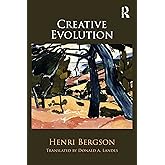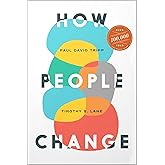
Download the free Kindle app and start reading Kindle books instantly on your smartphone, tablet, or computer - no Kindle device required.
Read instantly on your browser with Kindle for Web.
Using your mobile phone camera - scan the code below and download the Kindle app.

A History of Feelings Hardcover – February 14, 2019
A History of Feelings is a compelling account of the unsaid—the gestural, affective, and experiential. Arguing that how we feel is the dynamic product of the existence of our minds and bodies in moments of time and space, Boddice uses a progressive approach that integrates biological, anthropological, and social and cultural factors, describing the transformation of emotional encounters and individual experiences across the globe. The work of one of the world’s leading scholars of the history of emotions, this epic exploration of our affective life will fascinate, enthrall, and move all of us interested in our own well-being—anyone with feeling.
- Print length240 pages
- LanguageEnglish
- PublisherReaktion Books
- Publication dateFebruary 14, 2019
- Dimensions6.25 x 1.1 x 9.25 inches
- ISBN-101789140676
- ISBN-13978-1789140675
Book recommendations, author interviews, editors' picks, and more. Read it now.
Frequently purchased items with fast delivery
Editorial Reviews
Review
"Boddice has undertaken a task that he readily acknowledges may raise more than a few questions: to further understanding of how place and time affect the expression of human feelings. His 'episodic' approach leads readers through classical literature, rhetoric, and even the works of Mary Wollstonecraft and Jane Austen to illustrate that the expression of feelings depends on words and audience, and that the history of how these have changed over time is evident and important. Perhaps the best illustration of this is Boddice’s examination of the Age of Reason, a time when 'Passions of the soul [were] framed outside the realm of reason,' leading to a bifurcation of thought and feeling that remains an important part of human expression today. With his witty examination of how words and language change over time and his lament that the twenty-first-century reliance on emoji and phrases such as 'all the feels' are wholly inadequate to fully express emotion, Boddice has written a book that will make readers ponder why the road from the past is littered with useful expressions for communicating how they feel. Recommended." ― Choice
"We can only understand emotions in the context of their culture and their time. . . . According to [Boddice], emotionally charged concepts cannot simply be translated from one language, time, or culture to another. . . . Critical and political. . . . Boddice rages against the emphasis on happiness in the policies of many countries." ― Dutch Review of Books
"A History of Feelings is an incisive, innovative, provocative book of unequaled scope. In it, Boddice shows his fluency and facility not just with multiple languages, archaic and modern, but also with a vast body of scholarship distributed across several disciplines, including psychology; neuroscience; the history of medicine; rhetoric; and, of course, the history of emotions. This impressive volume should interest intellectual and emotional historians and historians of science. One would hope it would also attract the attention of psychologists, who would gain much from it." -- Susan J. Matt ― History Journal
"This novel and ambitious survey of emotions history will be a real boon for teachers in the field and a springboard for further research. The take on the current state of emotion in relation to the past is particularly challenging." -- Peter N. Stearns, university professor of history, George Mason University
"[A] fascinating book." -- Thomas Dixon, director, Centre for the History of the Emotions, Queen Mary, University of London
About the Author
Product details
- Publisher : Reaktion Books; 1st edition (February 14, 2019)
- Language : English
- Hardcover : 240 pages
- ISBN-10 : 1789140676
- ISBN-13 : 978-1789140675
- Item Weight : 1.1 pounds
- Dimensions : 6.25 x 1.1 x 9.25 inches
- Best Sellers Rank: #2,504,407 in Books (See Top 100 in Books)
- #53,429 in World History (Books)
- Customer Reviews:
About the author

robboddice.com
Rob Boddice (PhD, FRHistS) is a Senior Researcher at HEX, Tampere. He has previously held positions at Harvard University, McGill University, the Max Planck Institute for Human Development, and Freie Universität Berlin, and has been funded extensively by the Deutsche Forschungsgemeinschaft and the Horizon2020 programmes of the European Commission. Boddice has published widely in the history of medicine, the history of science and the history of emotions.
Customer reviews
- 5 star4 star3 star2 star1 star5 star71%20%9%0%0%71%
- 5 star4 star3 star2 star1 star4 star71%20%9%0%0%20%
- 5 star4 star3 star2 star1 star3 star71%20%9%0%0%9%
- 5 star4 star3 star2 star1 star2 star71%20%9%0%0%0%
- 5 star4 star3 star2 star1 star1 star71%20%9%0%0%0%
Customer Reviews, including Product Star Ratings help customers to learn more about the product and decide whether it is the right product for them.
To calculate the overall star rating and percentage breakdown by star, we don’t use a simple average. Instead, our system considers things like how recent a review is and if the reviewer bought the item on Amazon. It also analyzed reviews to verify trustworthiness.
Learn more how customers reviews work on AmazonTop reviews from the United States
There was a problem filtering reviews. Please reload the page.
- Reviewed in the United States on April 23, 2020The history of emotions, apparently, is a relatively new area of research that has crept up upon academia, where, after an inculcation of 20 years or so, it has sprung itself on to me, a general reader. Your educational pedigree may be as tattered as mine, if so, read on as I introduce you briefly to my difficulties with Boddice, what I had hoped for, and what the book actually contains, both high and low points.
Boddice has a grand plan. “We empathize, primarily, with what we ourselves know how to feel.” He “rejects a universal theory of emotions and adopts a biocultural (sic) approach to argue that how we feel is the dynamic product of the existence of our minds and bodies in moments of time and space.” To be precise “…it is impossible to conceive of a human being outside of culture.” Boddice believes that “Meaning… is always made in context, in culture, and in society… without this we are left only with the veneer of experiential change sitting atop an otherwise stable biology.” And “…it is absolutely beyond doubt that the way emotions have been done has changed over time – the doing includes the words we use for affective experiences, the gestures (facial and bodily) that we use to express them, and the cultural scripts that determine the when and the how of expression – so too must experience itself have changed.”
Now doesn’t that sound wonderful? Who wouldn’t one want to know how our ancestors felt, why, and how they expressed these feelings in the world in which they lived. And indeed, the introduction sets forth a program that, had Boddice followed with dispatch, I would have granted him five stars and read everything other of his books. Sadly, I found many of his examples maddening. Not all; his work on the Iliad was revealing, I enjoyed his reworking of Aristotle’s eudaimonia, his work on Descartes, of great interest. But far too often he writes indirectly. Much seems left unsaid. What are we to make of the Carte de Tendre in Scudery’s novel Clelie? Or that Jenner, the inventor of vaccination, was “depressed” at the death of his loved ones, except that it was an expressive use of word (for which, see Lakoff and Johnson’s Metaphors We Live By)? Why Thomas Paine and not Abigail Adams? What of Hildegard of Bingen and why not Tristan and Isolde? These examples aside, why could not the author have come out to clearly, at the onset of his chapters, ro inform us of the feeling(s) that he wished to examine, what brought them about, how their expression differed from that of the present day, and what conclusions could thus be reached? Far too often he sacrifices clarity for an allusive turn of phrase, leaving me wondering, rereading, and wondering again.
Perhaps this is modern scholarship. Boddice is learned. I am not. I enjoyed, and recommend not only the introduction, but his final chapter, on emotional capitalism – our times are those of happiness industries, and Boddice underlines the concern that any individual should have at the incorporation of what should be a private concern into a goal of the nation state. Yet I recommend A History of Feelings, still. It is a brief volume, which must be wrung like a lemon, to derive its juice.












